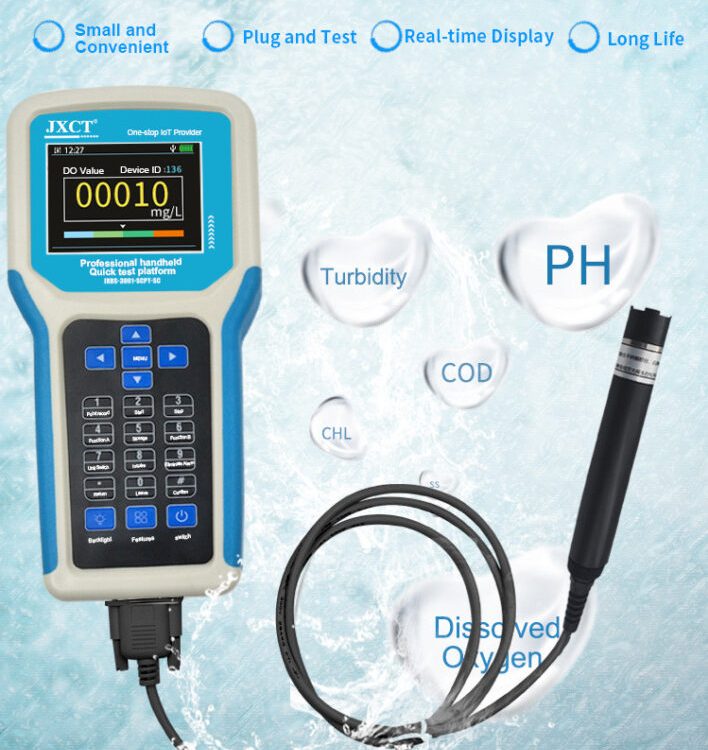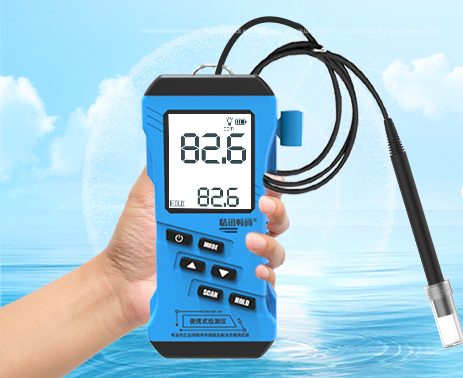Water quality detector is an important aspect of environmental monitoring. It plays a vital role in assessing the health of aquatic ecosystems and ensuring safe drinking water. In this article, the significance of water quality detection in environmental monitoring will be explored, along with its applications and the impact it has on the sustainable management of our natural resources.
Understanding Water Quality Detectors

Water quality detectors refers to the process of measuring and analyzing various parameters in water, such as pH, dissolved oxygen, turbidity, and nutrient levels. These parameters provide valuable insights into the overall health and suitability of water for various uses, including drinking, agriculture, and aquatic life support. Water quality detection is typically conducted using specialized instruments and sensors that can measure and analyze these parameters accurately.
Applications of Water Quality Detector
Drinking Water Safety:
Water quality sensor is crucial for ensuring the safety of drinking water. By monitoring parameters such as microbial contamination, chemical pollutants, and pH levels, water quality detection helps to identify potential health risks and ensure that drinking water meets regulatory standards.

Aquatic Ecosystem Health:
Water quality detector is essential for assessing the health of aquatic ecosystems, such as rivers, lakes, and oceans. By monitoring parameters like dissolved oxygen, nutrient levels, and turbidity, water quality detection can identify pollution sources and ecological imbalances that may affect aquatic life.
Agricultural Water Management:
Water quality sensor is important for managing water resources in agriculture. By monitoring parameters such as salinity, nutrient levels, and pH, water quality sensor helps farmers optimize irrigation practices and prevent soil and water contamination from agricultural activities.
Industrial and Municipal Discharge Monitoring:
Water quality sensor is monitor the discharge of industrial and municipal effluents into water bodies. By measuring parameters such as chemical pollutants, temperature, and suspended solids, water quality detector helps to ensure compliance with environmental regulations and minimize the impact of pollution on water resources.
Impact of water quality detectors on natural resources
The availability of reliable water quality data from detection efforts has significantly impacted the sustainable management of natural resources. Here are some of the significant impacts of water quality detector on sustainable resource management:

Protection of Aquatic Ecosystems:
Water quality detector helps to identify pollution sources and ecological imbalances, enabling proactive measures to protect aquatic ecosystems and preserve biodiversity.
Safe Drinking Water:
Water quality sensor ensures that drinking water meets regulatory standards, safeguarding public health and reducing the risk of waterborne diseases.
Sustainable Agriculture:
Water quality sensor enables farmers to optimize irrigation practices, prevent soil and water contamination, and promote sustainable agricultural water management.
Regulatory Compliance:
Water quality sensor supports regulatory compliance by monitoring industrial and municipal discharges, ensuring that water bodies are not adversely affected by pollution.
Future Developments in Water Quality Detection
With technological innovation and the growing demand for water quality data, major advances in water quality testing are expected in the future. Future developments in water quality detection are anticipated to include:
- Sensor Miniaturization and Integration: Advancements in sensor technologies will lead to the development of compact and integrated water quality sensors, enabling real-time and remote monitoring of water parameters.
- Data Analytics and Artificial Intelligence: Water quality sensor data will be analyzed using advanced data analytics and artificial intelligence algorithms to extract valuable insights and trends, facilitating proactive decision-making and early pollution detection.
- Autonomous Monitoring Systems: Autonomous monitoring systems, equipped with advanced sensors and communication technologies, will enable continuous and real-time monitoring of water quality in remote and challenging environments.
- Integration with Internet of Things (IoT): Water quality detection systems will be integrated into IoT networks, allowing for seamless data transmission, remote monitoring, and automated response mechanisms.
In conclusion, water quality detector plays a critical role in environmental monitoring, ensuring the safety of drinking water, protecting aquatic ecosystems, and promoting sustainable management of water resources. As technology continues to advance, water quality detector will play an increasingly vital role in understanding and managing our natural resources, contributing to a more sustainable and resilient future.
